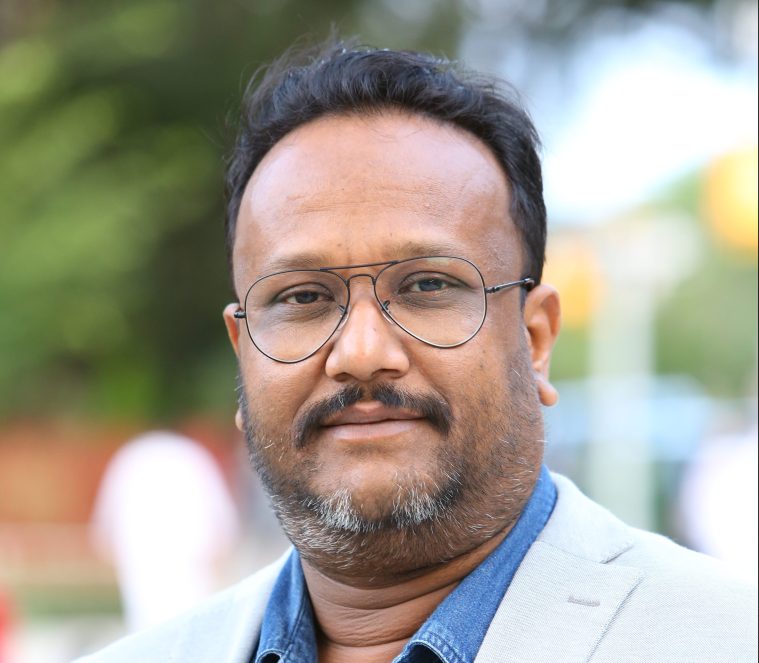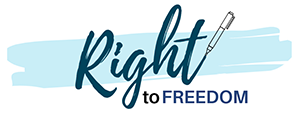Exiled Bangladeshi journalist Kanak Sarwar says sister’s detention won’t silence him

By Sonali Dhawan/CPJ Asia Researcher
For years, exiled Bangladeshi journalist Kanak Sarwar advised his family members not to keep public profiles on Facebook, fearing his critical reporting would lead to harassment by supporters of the Awami League-led government. So he was alarmed when his sister, Nusrat Shahrin Raka, told him in September that someone had created a fake Facebook account using her name, email address, phone number, and photos to publish posts critical of authorities.
That fake profile would land Raka in jail. On October 5, four days after she reported the account to a local police station, members of the Rapid Action Battalion, an elite paramilitary unit of the Bangladesh police, raided her home and detained her and her three sons, all under 18. The unit alleged in a press release, which CPJ reviewed, that Raka was an “active member of an anti-state propaganda and conspiracy circle” with the “treasonous Kanak Sarwar.”
The Rapid Action Battalion, which was sanctioned by the U.S. government in December for gross human rights violations, released Raka’s sons after 30 hours, said Sarwar. But the Rapid Action Battalion kept Raka behind bars. On October 5, it filed a first information report, the first step in a police investigation, alleging that she authored the Facebook posts in violation of the Digital Security Act. The next day, it filed an additional first information report, claiming it had seized methamphetamines from Raka’s home in violation of the Narcotics Control Act. (The U.S. Senate Committee on Foreign Relations has accused the battalion of planting evidence, including illegal drugs, at crime scenes.)
Sarwar, who lives in the United States, told CPJ that his sister’s ongoing detention is in retaliation for his criticism of the Bangladesh government on his YouTube channel, Kanak Sarwar News. Sarwar, who worked as a journalist in Bangladesh for more than 20 years, fled the country in 2016 after he was detained for nine months when his outlet, Ekushey TV, broadcasted an opposition figure’s speech on the one-year anniversary of the Awami League’s victory in the violent 2014 parliamentary elections.
A Facebook spokesperson told CPJ via email that the fake account has been removed for violating the company’s policies on “inauthentic behavior” but could not confirm who set up the account.
CPJ emailed the offices of Prime Minister Sheikh Hasina, Attorney General Abu Mohammad Amin Uddin, and Dhaka Metropolitan Police Commissioner Md Shafiqul Islam, for comment but did not receive any reply. Khandaker Al Moyeen, the director of the legal and media wing of the Rapid Action Battalion, did not respond to CPJ’s request for comment sent via messaging app.
Sarwar spoke to CPJ via video call regarding his sister’s ongoing detention, the Bangladesh government’s efforts to silence his voice in exile, and the impact on his journalistic work. This interview has been edited for length and clarity.
How did you find out about your sister’s arrest?
I came to know about my sister’s arrest almost 20 hours [after it occurred]. When the Rapid Action Battalion handed over my sister and her three children to the police, my nephew called me over the phone [while he was still in custody]. He was tremendously intimidated, and I heard his voice shaking, and he was crying in fear. Around this time, the Rapid Action Battalion leaked the news and pictures of my sister’s arrest to the press.
I could not believe it at first. I was speechless momentarily. I felt helpless, which I did not feel even during my detention in Bangladesh by the same autocratic regime.
Within hours of my communication with my sources in Bangladesh, I learned that because my sister filed a general diary [a police complaint] against the fake Facebook account, the prosecution’s merit in the case was zero. That is why they filed an additional complaint against her under the Narcotics Control Act: to allow the government more tools to lengthen her jail time.

Why do you believe authorities targeted her?
My sister has been targeted because of my journalism. When we were students and the newspaper was delivered to our house in the morning, my sister always turned to the entertainment and fashion section. I have never seen her interested in any political issues.
The arguments in applications [submitted by both the Detective Branch of the Dhaka police and the Rapid Action Battalion to a local magistrate to interrogate Raka] show that they want to interrogate her about me, my sources, and methods of collecting information. They have picked the wrong target, as I do not even discuss my journalism [with my sister].
How has your sister’s ongoing detention impacted your family?
When I talked with my nephews, I felt they were suffering anxiety, sleeplessness, and depression. My sister’s husband lives abroad, and now their children are separated between two to three relatives. They are not sleeping together in the same place. Their home environment and food habits have changed. My sister is an educated lady, and she has completed her master’s in sociology; she teaches her kids at home. Every day my wife speaks with my youngest nephew, who is only six years old, over video call to divert his mind from his mother and tell him stories to sleep.
Inside the jail, [I heard] my sister’s condition is not comfortable. She is treated like a convicted criminal just because she is my sister.
Her bail application has been pending at the Bangladesh High Court since November 11, 2021. State lawyers delayed the bail hearing four times, on December 5, 6, 12, and 15. Then, the court was on vacation. Finally, the court has resumed session, but the [newly appointed] senior judge is sick. Before he [is sworn in], my sister’s case will not be scheduled for the hearing.
Why did you decide to flee Bangladesh in 2016?
After I was released from jail, a source in a government agency told me that I was lucky that I had not already disappeared but that I could be disappeared any time because the government was not happy about the bail decision.
I was very confused about what to do because I was looking for a new job in journalism in Bangladesh. My wife was pregnant. I had no plan to settle down outside the country.
But I had to make a quick decision. I have had my U.S. visa since 2009. One of my police friends advised me not to go straight to the U.S. because government agencies always check the passenger list of flights to countries like the U.S. and U.K. At the airport, I prayed no one would recognize me. I first flew to Malaysia and then to the U.S. with just $1,000 in my pocket. I received a financial grant from CPJ a few weeks after I arrived.
If I had stayed in Bangladesh, I could have been killed, disappeared, or tortured brutally.
Did you face challenges as you began to report in exile?
My first YouTube channel, which I created 10 years ago, was Kanak Sarwar Live. In the first week of July 2020, Bangladesh government agencies were behind 16 copyright strikes against this account. According to YouTube’s policy, I cannot upload new videos on that channel. Now, 12 strikes have been removed, and four are still pending.
Then, I created another channel very quickly titled Rajnity (“Politics”), but within a few months, I saw people were confused about my official channel. Then I changed again to Kanak Sarwar News.
I started posting more videos in 2020 when the pandemic began. After that, people from different law enforcement agencies began calling and visiting my sister’s house and visiting my village to collect information about my political background, location, properties, and political background of my father, grandfather, and even my great-grandfather.
Sometimes, I collected their number from my sister and called the agencies directly. I told them I could give them any information they needed. They told me that they saw my YouTube videos and were just carrying out the order of their superiors.
Then, the government tried to block my YouTube and Facebook accounts by Bangladesh High Court order, but they were not successful because they would have to block the entire site of YouTube or Facebook. Arrest warrants have been issued against me in three separate cases related to my journalism. In November 2021, the Dhaka Cyber Tribunal ordered law enforcement to confiscate my assets [in Bangladesh].
So even during my time living abroad, the Bangladesh government has still been strongly trying to silence me.
Has your sister’s arrest affected your ability to report freely in exile?
Initially, I was disturbed, but I was not afraid. When you fight for the truth, human rights, and democracy, you will face many things. If you criticize the government, it does not mean you are against the state. I love my country. That is my motherland.
I am continuing my YouTube channel; years back, I planned a news portal and mobile app for the alternatives of my YouTube channel, which are almost ready for launch.
When you are the voice of the people, the voice of the voiceless, journalism will be an addiction, not a profession, when people benefit from and learn from your reporting. I will continue my journalism. Currently, you cannot suppress journalists or the media by force or fear. I believe, eventually, the Bangladesh government must listen and respect people’s voices and journalists to hear the truth.

